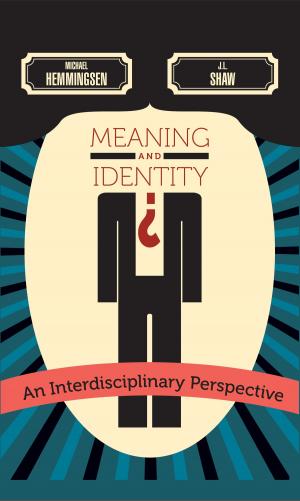Toward an Organismic Subjectivity
Affect, Relation, Entanglement
Nonfiction, Religion & Spirituality, Philosophy, Metaphysics, Mind & Body| Author: | Tano S. Posteraro | ISBN: | 1230000259916 |
| Publisher: | Society for Philosophy & Culture | Publication: | August 12, 2014 |
| Imprint: | Language: | English |
| Author: | Tano S. Posteraro |
| ISBN: | 1230000259916 |
| Publisher: | Society for Philosophy & Culture |
| Publication: | August 12, 2014 |
| Imprint: | |
| Language: | English |
The motivating ambition of this project is the endeavour to think the subject anthropo-eccentrically, to free it of its conscious-agential overtones and to foreground instead the active organism in all its ecologically entangled, metabolically perspectival glory. In other words, where the philosophical canon has, since Kant, traditionally taken the world to be conditioned by the possibilities of human experience, the project at hand ecologizes these conditions such that they emerge out of, instead of transcendentally undergirding, the spaces and times of a diversity of living things.
I define the subject, in the course of the work, as a body productive of its own spatial and temporal fields, a body that lives its own space and time. Ecology is pluralized, made bodily. And the body itself is dynamicized and rendered porous - less an absolute limit than a variable topology separating, uniting, and enfolding organism and ecology, self and other, subject and world.
I begin, in Chapter 1, with Deleuze and the rhythmic contractions that define the temporal pole of organismic subjectivity. In Chapter 2, I turn toward the way spaces are configured on the basis of the affective enaction of organismic life. This is organismic spatiality. In Chapter 3, I introduce Deleuze’s distinction between the actual and virtual in order to properly theorize the way organismic abilities and environmental layouts are pre-subjectively related such that actual organismic activity individuates a field of spatiotemporal experience. And as the structure of this relation fluctuates, so too does the framework of subjective experience, the sensorimotor-perceptual affects by which experience is defined. Organismic subjectivity is, as a consequence, both relentlessly dynamic and tied irreducibly to the organization of its own world. To think this entanglement is to think subjectivity as swarm, a concept that opens this theory onto an array of new possibilities — toward, to take only one example among a range of many, a human-technological entanglement that conceives scientific apparatuses in their integration with a collectively human subjectivity. I conclude the work with a brief gesture toward the implications carried by the development of such possibilities.
The motivating ambition of this project is the endeavour to think the subject anthropo-eccentrically, to free it of its conscious-agential overtones and to foreground instead the active organism in all its ecologically entangled, metabolically perspectival glory. In other words, where the philosophical canon has, since Kant, traditionally taken the world to be conditioned by the possibilities of human experience, the project at hand ecologizes these conditions such that they emerge out of, instead of transcendentally undergirding, the spaces and times of a diversity of living things.
I define the subject, in the course of the work, as a body productive of its own spatial and temporal fields, a body that lives its own space and time. Ecology is pluralized, made bodily. And the body itself is dynamicized and rendered porous - less an absolute limit than a variable topology separating, uniting, and enfolding organism and ecology, self and other, subject and world.
I begin, in Chapter 1, with Deleuze and the rhythmic contractions that define the temporal pole of organismic subjectivity. In Chapter 2, I turn toward the way spaces are configured on the basis of the affective enaction of organismic life. This is organismic spatiality. In Chapter 3, I introduce Deleuze’s distinction between the actual and virtual in order to properly theorize the way organismic abilities and environmental layouts are pre-subjectively related such that actual organismic activity individuates a field of spatiotemporal experience. And as the structure of this relation fluctuates, so too does the framework of subjective experience, the sensorimotor-perceptual affects by which experience is defined. Organismic subjectivity is, as a consequence, both relentlessly dynamic and tied irreducibly to the organization of its own world. To think this entanglement is to think subjectivity as swarm, a concept that opens this theory onto an array of new possibilities — toward, to take only one example among a range of many, a human-technological entanglement that conceives scientific apparatuses in their integration with a collectively human subjectivity. I conclude the work with a brief gesture toward the implications carried by the development of such possibilities.















